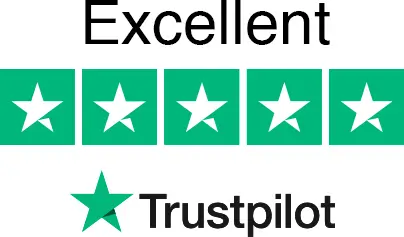Key Takeaways
- You can legally fundraise in the UK without being a registered charity, provided you comply with strict regulations.
- If your fundraising exceeds the registration threshold or meets the definition of a charity under UK law, you may need to register or risk penalties and investigation.
- Choosing the right legal structure—such as a community interest company (CIC) or unincorporated association—ensures your fundraising activities meet Fundraising Regulator standards.
- Using incorrect wording or failing to state your non-charity status can lead to misrepresentation, donor disputes, and reputational damage.
- Transparent record-keeping is vital. Document every donation and explain clearly to donors how funds will be spent.
- Most non-charity fundraising is ineligible for Gift Aid. You must inform donors so expectations are managed.
- Conduct thorough due diligence and prepare for KYC (Know Your Customer) verification when using third-party platforms like GoFundMe or JustGiving.
- Compliance means understanding your obligations under the Fundraising Regulator’s Code, maintaining a robust complaints policy, and following up-to-date compliance processes.
- Go-Legal AI offers expert-approved fundraising checklists, policies, and document templates to reduce your compliance risk.
- Fundraising without proper legal checks risks legal disputes, frozen accounts, or bans from future fundraising, but with the right tools and guidance you can protect your campaign and reputation.
- Go-Legal AI is rated Excellent on Trustpilot with 170+ five-star reviews from satisfied users.
Can You Legally Fundraise Without Charity Status in the UK?
Raising money for a cause, community project, or personal need can be deeply rewarding, but if you’re not a registered charity, the UK legal framework is strict. Missteps can result in penalties, reputational damage, or even criminal investigation.
This comprehensive guide answers the Google-leading question, “Can you fundraise without being a charity UK,” explaining the legal boundaries, required disclosures, structures, and steps to keep your campaign compliant. Whether you aim to crowdfund for neighbourhood improvements, help an individual, or run a social initiative as a non-charity, this guide empowers you to fundraise lawfully and transparently.
Can You Fundraise Without Being a Charity in the UK?
Yes—individuals, groups, businesses, and community bodies can fundraise without formal charity registration in England and Wales. The legal framework (principally the Charities Act 2011 and the Fundraising Regulator’s Code of Fundraising Practice) sets clear expectations for non-charity fundraising.
- Avoid misleading donors—never suggest you are a registered charity unless true.
- Be transparent about your status and intended use of funds.
- Comply with the rules of any platform used and be honest in all communications.
Who Can Raise Money Without Charity Status?
The following can lawfully fundraise without being charities in England & Wales:
- Individuals—whether for personal causes (medical, educational, emergencies) or to support others.
- Unincorporated groups—clubs, societies, and neighbourhood associations operating outside formal charity law.
- Community Interest Companies (CICs)—social enterprises focused on community benefit.
- Businesses—raising funds externally, provided they are transparent about the purpose.
- Informal community groups—so long as they do not mislead donors.
What Are the Legal Requirements for Non-Charity Fundraising in the UK?
Fundraising outside charity status brings clear legal requirements:
- Do not mislead—Do not claim or imply you are a charity unless registered.
- Follow the Fundraising Code—Abide by honesty, transparency, and the protection of vulnerable people.
- Comply with UK GDPR—Collect and store donor details securely and lawfully.
- Keep robust records—Log all donations, spendings, and donor communications.
- Establish a complaints process—Be prepared to resolve donor concerns professionally.
When Must You Register as a Charity? Understanding the Law
You are legally required to register as a charity in England and Wales if:
- You exist only for charitable purposes per the Charities Act 2011,
- Your annual income exceeds £5,000,
- Your work benefits the public.
Once registered, charities must meet strict accounting, governance, annual reporting, and regulatory obligations.
⚡ Get legal tasks done quickly
Create documents, follow step-by-step guides, and get instant support — all in one simple platform.
🧠 AI legal copilot
📄 5000+ templates
🔒 GDPR-compliant & secure
🏅 Backed by Innovate UK & Oxford
Choosing the Right Legal Structure for Non-Charity Fundraising
Your chosen legal structure impacts your liability, regulatory requirements, and fundraising credibility.
- Unincorporated groups: Simple to create, but organisers are personally liable for commitments and debts.
- Community Interest Companies (CICs): Designed for social purposes and can access grants, but must report to Companies House and clarify non-charity status.
- Limited companies: Can fundraise for outside causes, but must clearly state the separation from business profits.
- Clubs and societies: Governed by a constitution; not charities unless they apply for and gain registration.
Key Documents and Compliance Checklist for Non-Charity Fundraisers
Robust documentation demonstrates your transparency and protects you from regulatory or donor challenges.
| Document/Policy | Purpose | Why It Matters |
|---|---|---|
| Fundraising Statement | Explains non-charity status and intended use | Prevents misrepresentation and sets donor expectations |
| Complaints Policy | Documents how donor complaints will be managed | Satisfies regulator expectations and maintains trust |
| Donor Record Log | Records names, dates, amounts | Ensures full accountability and audit readiness |
| Use of Funds Report | Outlines donation allocation and spending | Builds confidence and trust among supporters |
| Risk Assessment | Identifies and manages fraud or misuse risks | Protects your campaign and donor funds |
Step-by-Step: Staying Compliant When Fundraising Without Charity Status
To fundraise legally and ethically as a non-charity in the UK, follow these steps:
- Disclose Your Legal Status: Every page or fundraising material should state that you are not a registered charity.
- Draft a Fundraising Statement: Explain your project’s aims, spending plans, and who will benefit.
- Ring-Fence Funds: Use a separate account for donations to prevent confusion with personal or business money.
- Keep Donor Records: Collect donor information and consent in line with UK GDPR requirements.
- Prepare a Complaints Policy: Explain how you’ll handle and resolve donor concerns.
- Monitor Spending: Log all outgoings and receipts, and share an end-of-campaign summary with donors.
- Complete KYC Checks: Gather identification documents in advance for faster platform approval.
- Regularly Audit Compliance: Use our compliance checker to review and update your processes and documentation.
Common Pitfalls: How to Avoid Misrepresentation and Fundraising Mistakes
Many fundraisers meet trouble when they:
- Blur the line between “charity” and “community” project, causing confusion.
- Overlook record-keeping, risking accusations of fraud or mishandling.
- Ignore donor complaints or platform requirements, resulting in suspensions.
- Use generic templates missing UK law nuances, leaving hidden legal gaps.
What Are the Major Crowdfunding Platform Rules for Non-Charity Fundraisers?
UK fundraising platforms, including GoFundMe and JustGiving, enforce strict rules:
- Verification: You must provide government-verified ID and, at times, business or CIC documents.
- Fundraising Statement: State clearly you are not a charity, the intended use of funds, and who is handling the money.
- KYC Checks: The organiser must provide current address and identification information. Sometimes, platform KYC extends to beneficiaries.
- Track and Update Use of Funds: Platforms often require public updates and spending confirmation.
- Gift Aid Restrictions: Non-charities cannot claim Gift Aid unless working in partnership with a registered charity.
Accepting Gift Aid or Tax Relief Without Charity Status
Only registered charities, Community Amateur Sports Clubs (CASCs), and HMRC-recognised bodies can claim Gift Aid or offer tax relief on donations.
Why Not?
- HMRC’s scheme is strictly for registered charities and approved bodies.
- If your campaign promises Gift Aid or tax relief in error, you risk misleading donors and breaching UK tax law.
Record-Keeping & Reporting: Your Compliance Backbone
Transparent record-keeping is a legal and regulatory must for non-charity fundraisers:
- Donation Logs: Record each incoming donation, amount, donor name (where possible), and date.
- Receipts: Save digital or paper receipts for all purchases made with raised funds.
- Transparency Reports: Share outcomes and spending breakdowns with donors, instilling further trust.
- Be Audit-Ready: If ever challenged by a regulator or platform, you must produce records quickly.
- GDPR Compliance: Store and process data securely, with donor consent.
How Our Tools Streamline Non-Charity Fundraising Compliance
Go-Legal AI is your expert partner for practical and legally robust fundraising:
- UK-specific fundraising checklists: Step-by-step, lawyer-drafted aids for non-charity compliance.
- Customisable templates: Instantly create GDPR-compliant fundraising statements, complaints policies, and donor records—no jargon.
- AI-powered document review: Upload your drafts and our AI will alert you to missing clauses, fuzzy wording, or legal risk areas.
- Platform onboarding prep: Step-by-step instructions help get you verified fast, whether using GoFundMe, JustGiving, or alternative platforms.
- On-demand support: Affordable access to experienced legal professionals for compliance reviews, disputes, or growth advice.
Frequently Asked Questions (FAQ)
Can individuals fundraise for personal causes without being a charity in the UK?
Yes. Individuals can legally collect funds for health costs, emergencies, or others’ needs. Just make it clear you are not a charity and explain how donations will be used.
What is the maximum you can raise before needing to register as a charity?
If your organisation exists for charitable purposes and annual revenue exceeds £5,000, you must apply for charity registration with the Charity Commission.
What wording should I use to notify donors I am not a registered charity?
Use clear statements such as: “We are not a registered charity. Donations are for [purpose]. They are not eligible for Gift Aid or tax relief.”
Can small community groups fundraise without registering?
Yes, as long as annual income remains below £5,000 and you follow the Code of Fundraising Practice.
Can a business or CIC run a fundraising campaign for a social initiative?
Yes—so long as you are transparent about your structure, disclose your status, and comply with regulator and platform requirements.
What are the legal risks if fundraising compliance is ignored?
You may face platform bans, refund orders, regulatory fines, or even criminal prosecution in cases of misrepresentation or fraud.
How do I prepare KYC documents for fundraising platforms?
Collect and verify ID, proof of address, and relevant business documents ahead of time. Our KYC checklist details everything required for smooth onboarding.
Can you use GoFundMe or JustGiving without being a charity?
Yes, these platforms support non-charities but will require full compliance. Prepare your paperwork, disclose your status, and follow their verification and reporting rules.
What happens if a non-charity breaches fundraising rules?
Consequences can include campaign suspension, donor refunds, regulatory reporting, and—if serious—criminal investigation and loss of future fundraising permissions.
Is a complaints policy needed for non-charity fundraisers?
Yes—the Fundraising Regulator expects all UK fundraisers, including non-charities, to manage donor complaints. Download our template for instant compliance.
Create Your Fundraising Compliance Toolkit
Building donor trust and meeting your legal duties needn’t be complex. With our platform, you can access expert-drafted, fully compliant documents—fundraising statements, digital donor logs, complaints policies, and more. Every tool is backed by instant AI-powered review and fixed-fee expert guidance. Whether you’re an individual, local group, or CIC, our platform safeguards your campaign and reputation.
Secure Your Non-Charity Fundraising With Confidence
Legal compliance for non-charity fundraising in the UK means clear disclosure, vigilant record-keeping, and robust documentation. Campaigns that skip these essentials risk fines, reputational harm, and loss of fundraising permissions. By harnessing expert tools—customisable compliance checklists, lawyer-drafted statements, and instant document review—you protect your donors, secure your funds, and demonstrate professional integrity from the start.
Let us handle the legalities so you can focus on your cause. Build your fundraising documents, manage compliance checks, and keep every campaign safe and trusted with our platform in just a few clicks.
⚡ Get legal tasks done quickly
Create documents, follow step-by-step guides, and get instant support — all in one simple platform.
🧠 AI legal copilot
📄 5000+ templates
🔒 GDPR-compliant & secure
🏅 Backed by Innovate UK & Oxford










































